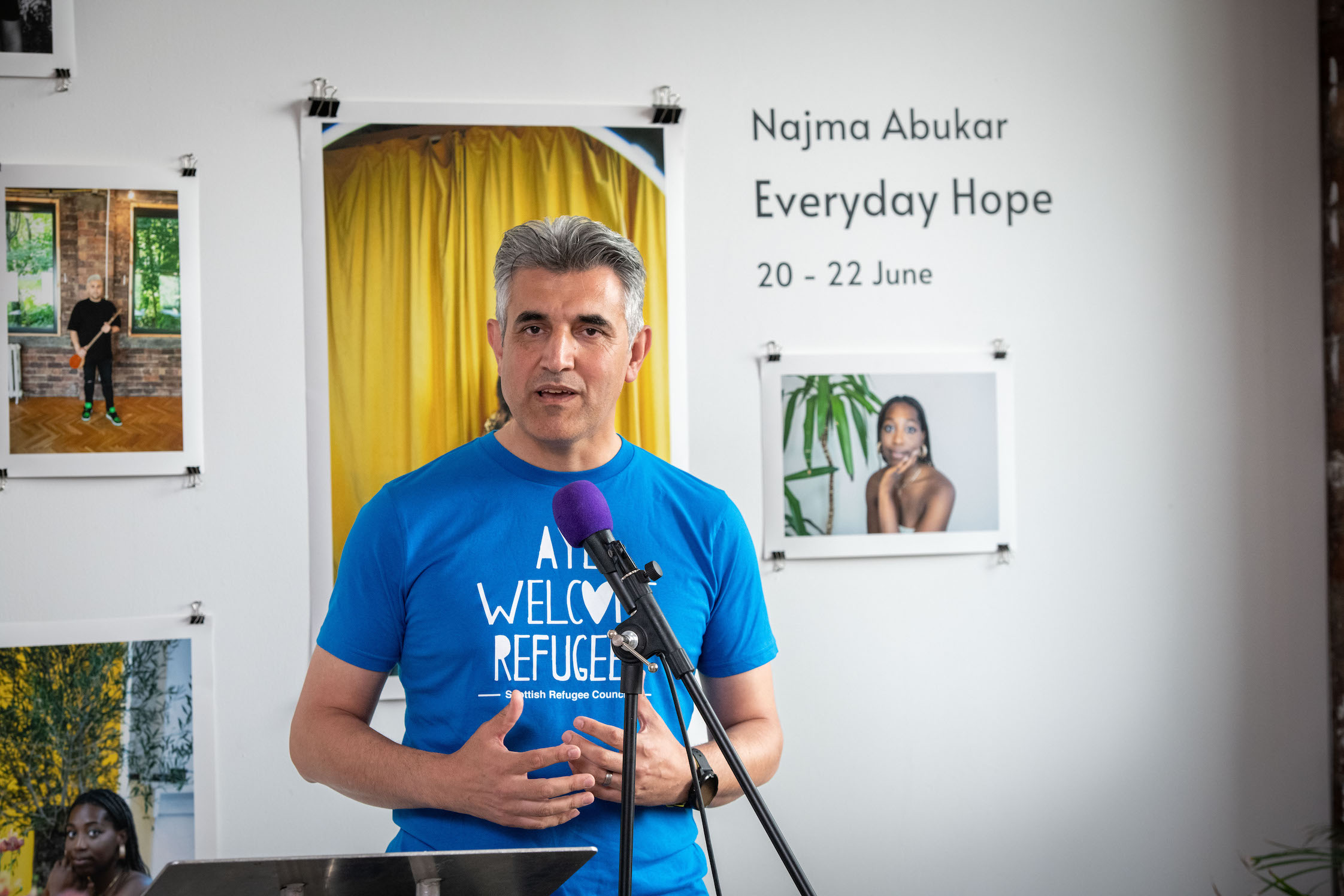Work ban fuels abuse, campaigners warn
Forced poverty and fear of deportation make asylum seekers easy targets.
The ban on work is contributing to rampant exploitation in cleaning, caring and other low-paid sectors of the economy, according to campaigners spoken to by The Lead.
Migrants’ rights advocates describe how the work ban, combined with low levels of subsistence payments, forces asylum seekers into underground and unregulated sectors. Their claims are supported by the leading research in the field.
“Given the in-built hostility of the system, it’s safe to assume that thousands are left feeling they have no choice but to work,” says Josephine Whitaker-Yilmaz, Policy and Public Affairs Manager for Praxis, a London-based charity that supports refugees and migrants.
“In doing so, they are left exposed to serious risks of exploitation and modern slavery at the hands of unscrupulous employers.”
The UN’s refugee agency (UNHCR) and the British Red Cross both argue that the ban fuels labour exploitation. “Low levels of financial support and the lack of the right to work combined mean that some people take up informal work in exploitative conditions,” states a 2022 report by the two organisations.
One interviewee was quoted as asking: “how long can you wait to see if the Home Office supports you? Sometimes you have to work to survive.”
“Many people in the asylum system live in appalling poverty because the government bans them from working and instead leaves them on a measly allowance that doesn’t cover the cost of essentials,” says Tim Naor-Hilton, chief executive of Refugee Action.
“They are criminalised for working to support themselves and left unable to report abuse or mistreatment for fear of being reported to Immigration Enforcement.”
“It’s a grim reality that some have no choice but to find work in the dangerous and exploitative informal labour market to help feed and clothe themselves and their children.”
Rose, a 31 year-old from West Africa, has been waiting four years for a decision on her asylum application. She dreams of opening her own restaurant, where she can serve the richly-spiced and flavourful food of her childhood home.
“The restaurant is my passion,” she says. “I love cooking, I would love to put it out there so that people could see what I’m able to do.”
But Rose’s dreams are on hold while she waits for a response to her asylum claim. In the meantime, people like Rose are often stuck with a choice between scraping by on their £47.39 a week payment from the Home Office or working illegally.
“It makes me suicidal,” she admits. “Sometimes I'm worried that by the time I'm given permission to work, I won't be able to stand on my feet to do the things that I love. I'm not able to be myself because the waiting time is too long.”
Restrictions “drive asylum seeking workers into precarious, low-paid sectors such as care and cleaning where exploitation is rife,” says Caitlin Boswell, Policy and Advocacy Manager at the Joint Council for Welfare of Immigrants (JCWI).
A 2013 report by researchers from Liverpool and Leeds universities found that asylum seekers working clandestinely often had jobs in hospitality, food packing, cleaning, construction, car washes and care.
At the same time, victims of labour exploitation can be found in the drug and sex industries. One charity The Lead spoke to say they had asylum-seeking clients who had turned to prostitution to supplement their £47.39 per week.
Working legally, Rose says, would give her independence, as well as improve her mental health. What’s more, working would help to keep Rose safe.
As Boswell explains, the fear of being caught – and possibly deported – means that people working clandestinely can’t challenge their employers. “They are criminalised for working to support themselves and left unable to report abuse or mistreatment for fear of being reported to Immigration Enforcement,” she says.
Bullying, racism, discrimination, underpayment or no payment at all are all common risks. Fear of deportation means that few are willing to speak up and report illegal or poor practices, which can lead to more severe forms of exploitation.
“Unscrupulous employers will use the threat of reporting [workers] to immigration enforcement, turning the system into a tool for coercion. This can put people at severe risk of labour exploitation including modern slavery,” says Lucila Granada, CEO of the anti-trafficking charity Focus on Labour Exploitation (FLEX).
“Employers needing to fill low-skilled roles at minimum wage will turn to criminal, exploitative and negligent recruiters supplying workers without the legal right to work using fake or fraudulent ID documents,” found a 2020 report by the Human Trafficking Foundation.
“It's terrible to live in such a situation where we have been neglected,” says Mohammed, who is also from West Africa. The 26 year-old, who dreams of studying to become a midwife, claimed asylum in the UK two years ago. “This whole mess was created by the government, just to make us doubt seeking asylum and just to make us feel depressed.”
Mohammed knows of at least one person in his situation who works illegally, although he does not do so himself. “If I was allowed to work, I would have been able to build up my CV and build up some kind of confidence and also experience,” he said. “It will be difficult to get employment out there.”
According to government data, there were 16,938 potential victims of modern slavery referred to the Home Office in 2022, around a quarter of whom were British citizens. Beyond these, the most common nationalities referred were Albanians, Eritreans and Sudanese – groups all well represented among asylum applicants in the UK. In 2021, for instance, Eritreans made up 7% of those seeking asylum, with 99% receiving refugee status.
“I’ve seen lots of Eritrean young girls working as domestic workers for households,” says a source in the UNHCR and Red Cross report. “It is kind of black market and sometimes they would even refuse to pay them . . . they wouldn’t say anything because they themselves are not allowed to work in this country.”
Once a person is recognised as a refugee, the ban on working is lifted. But while this should reduce the risk of labour exploitation, the long-term impact of the ban means people remain vulnerable.
According to JCWI’s Boswell, the ‘hostile environment’ policies of successive Conservative governments, which place tougher restrictions on employers, have built stigma around employing migrant workers. “The policies can deter employers from offering jobs to migrants in the first place, even when they have the right to work,’ she says.
Despite calls to lift the ban on working, current government policy is heading in the opposite direction. The recent Illegal Migration Act states that anyone deemed to have entered the UK illegally, for example on small boats, will have their asylum claims automatically rejected.
“The Act threatens to severely worsen this situation,” says Whitaker-Yilmaz of Praxis. “It will leave tens of thousands of people every year with no legal immigration status and no way of ever obtaining one.
“Faced with the prospect of living in perma-limbo in substandard Home Office accommodation, many will conclude they have no choice but to seek informal work in order to provide for themselves and their families. The consequences of this are likely to be dire.”
Rose and Mohammed are receiving support from Praxis.
The Lead is now on Substack.
Become a Member, and get our most groundbreaking content first. Become a Founder, and join the newsroom’s internal conversation - meet the writers, the editors and more.





